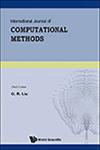A Modified Quantum-Inspired Genetic Algorithm for Continuum Structural Topology Optimization
IF 1.6
4区 工程技术
Q2 ENGINEERING, MULTIDISCIPLINARY
引用次数: 1
Abstract
Topology optimization and quantum computing have evolved rapidly over the past three decades. Previous topological optimum design methods suffered from financial burden and mathematical complexity. To overcome these shortcomings, a modified quantum-inspired evolutionary algorithm-based topology optimization method is proposed. This nested approach combines the classic solid isotropic microstructure with the penalization method and the double chains quantum genetic algorithm to establish an integral topology optimization framework. The former is utilized to determine the search direction of design variable updating. Meanwhile, the latter ensures abundant search diversity. The validity and feasibility of the developed methodology are eventually demonstrated by several application examples. The results indicate that the proposed optimization framework is independent of initial values and can lead to optimized structures. In addition, it will be more appropriate and effective if this strategy is deployed on a quantum computer in the future.连续体结构拓扑优化的改进量子遗传算法
拓扑优化和量子计算在过去三十年中发展迅速。以往的拓扑优化设计方法都存在着财务负担和数学复杂性的问题。为了克服这些缺点,提出了一种改进的基于量子进化算法的拓扑优化方法。该嵌套方法将经典的固体各向同性微观结构与惩罚方法和双链量子遗传算法相结合,建立了一个完整的拓扑优化框架。前者用于确定设计变量更新的搜索方向。同时,后者确保了丰富的搜索多样性。最后通过几个应用实例证明了所开发方法的有效性和可行性。结果表明,所提出的优化框架与初始值无关,可以优化结构。此外,如果将来将这一策略部署在量子计算机上,将更加合适和有效。
本文章由计算机程序翻译,如有差异,请以英文原文为准。
求助全文
约1分钟内获得全文
求助全文
来源期刊

International Journal of Computational Methods
ENGINEERING, MULTIDISCIPLINARY-MATHEMATICS, INTERDISCIPLINARY APPLICATIONS
CiteScore
3.30
自引率
17.60%
发文量
84
审稿时长
15 months
期刊介绍:
The purpose of this journal is to provide a unique forum for the fast publication and rapid dissemination of original research results and innovative ideas on the state-of-the-art on computational methods. The methods should be innovative and of high scholarly, academic and practical value.
The journal is devoted to all aspects of modern computational methods including
mathematical formulations and theoretical investigations;
interpolations and approximation techniques;
error analysis techniques and algorithms;
fast algorithms and real-time computation;
multi-scale bridging algorithms;
adaptive analysis techniques and algorithms;
implementation, coding and parallelization issues;
novel and practical applications.
The articles can involve theory, algorithm, programming, coding, numerical simulation and/or novel application of computational techniques to problems in engineering, science, and other disciplines related to computations. Examples of fields covered by the journal are:
Computational mechanics for solids and structures,
Computational fluid dynamics,
Computational heat transfer,
Computational inverse problem,
Computational mathematics,
Computational meso/micro/nano mechanics,
Computational biology,
Computational penetration mechanics,
Meshfree methods,
Particle methods,
Molecular and Quantum methods,
Advanced Finite element methods,
Advanced Finite difference methods,
Advanced Finite volume methods,
High-performance computing techniques.
 求助内容:
求助内容: 应助结果提醒方式:
应助结果提醒方式:


